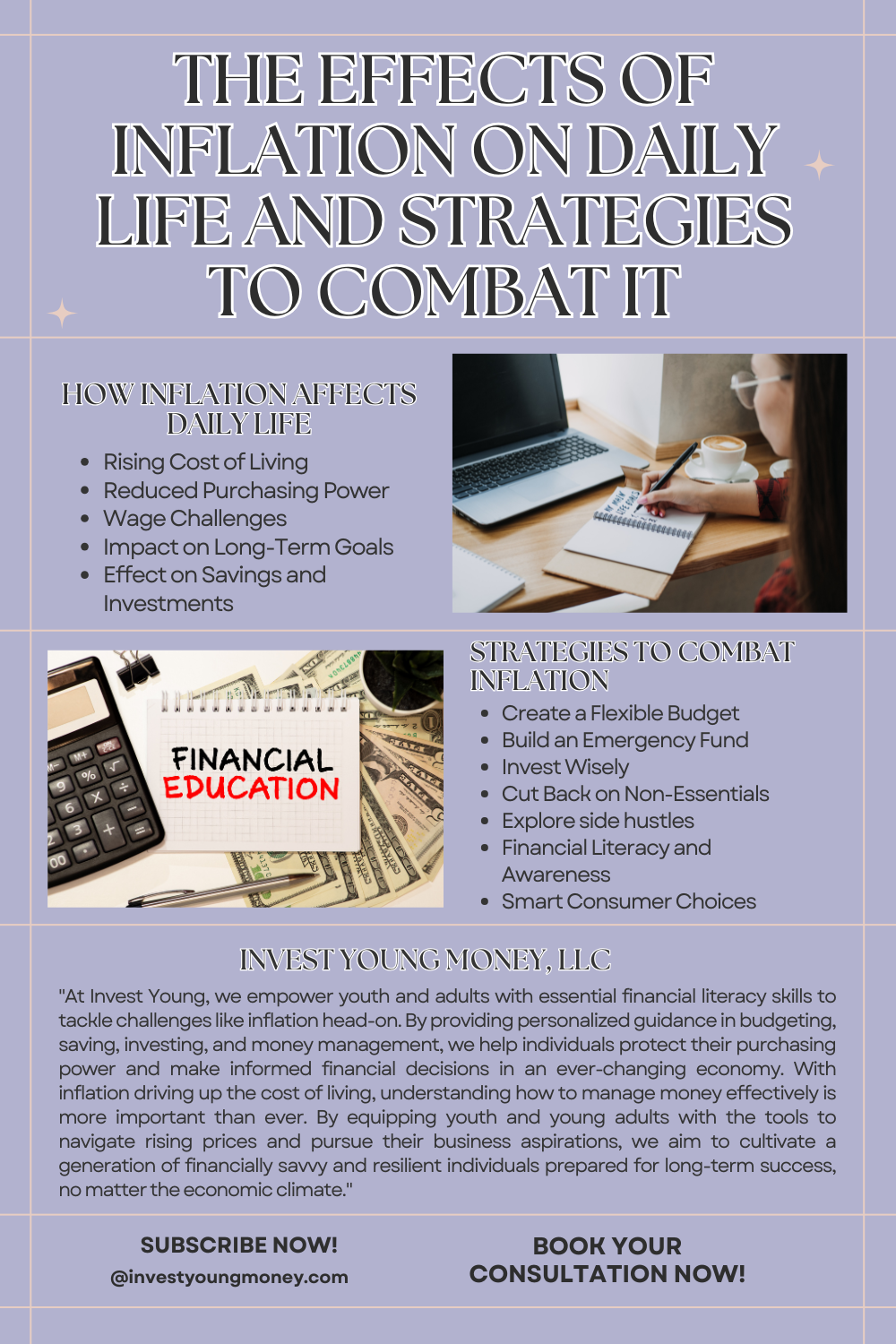
The Effects of Inflation on Daily Life and Strategies to Combat It
The Effects of Inflation on Daily Life and Strategies to Combat It
Inflation, the gradual increase in the cost of goods and services, affects nearly every aspect of daily life. From rising grocery bills to higher housing costs, it reduces purchasing power and reshapes financial decisions. Understanding how inflation impacts individuals and communities is crucial for developing strategies to mitigate its effects.
How Inflation Affects Daily Life
-
Rising Cost of Living
- Prices for essentials such as food, transportation, and healthcare increase, leaving households with less disposable income.
- Housing costs, including rent and mortgage payments, often rise, creating financial stress for families.
-
Reduced Purchasing Power
- As prices climb, the value of money diminishes, making it harder to maintain the same standard of living.
- Savings lose value if they don’t grow at a rate equal to or greater than inflation.
-
Wage Challenges
- In many cases, wages fail to keep pace with inflation, reducing real income.
- Job stability may be affected as businesses face higher costs and adjust their workforce.
-
Impact on Long-Term Goals
- Inflation can delay major life decisions, such as purchasing a home or retiring, as savings fall short of rising costs.
- Educational expenses and investment returns are also affected, making financial planning more complex.
5. Effect on Savings and Investments
- Traditional savings accounts lose value unless interest rates match or exceed inflation.
- Inflation can destabilize financial markets, making long-term investment planning more complex.
Strategies to Combat Inflation
-
Create a Flexible Budget
- Prioritize essential expenses and adjust spending to account for rising costs.
- Use budgeting tools to track and optimize your finances.
-
Build an Emergency Fund
- Save 3–6 months’ worth of expenses to cushion against unexpected price increases.
- Consider high-yield savings accounts to counteract inflation.
-
Invest Wisely
- Focus on investments that historically outpace inflation, such as stocks, real estate, or inflation-protected securities.
- Diversify your portfolio to reduce risks.
-
Cut Back on Non-Essentials
- Reduce spending on luxury items or services to free up resources for necessities and savings.
- Practice mindful consumption by buying in bulk or switching to cost-effective alternatives.
-
Increase Income
- Explore side hustles, or career advancements to boost earnings.
- Learn new skills that align with high-demand industries.
-
Educate Yourself
- Build financial literacy to understand economic trends and make informed decisions.
- Stay updated on inflation rates and adjust strategies accordingly.
7. Smart Consumer Choices -
- Shop strategically by taking advantage of discounts, buying in bulk, and avoiding non-essential purchases.
- Opt for energy-efficient appliances and sustainable practices to reduce recurring expenses.
Conclusion
Inflation is an inevitable part of economic cycles, but its impact can be managed with proactive measures. By understanding how inflation influences daily life and implementing smart financial strategies, individuals can protect their purchasing power and achieve financial stability.
How are you preparing to combat inflation? Share your tips and experiences below!
